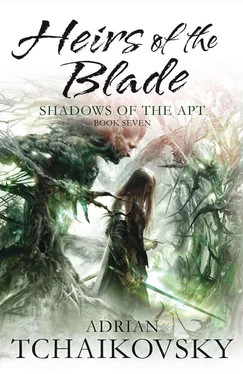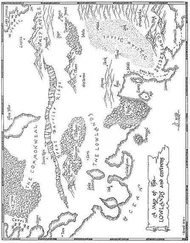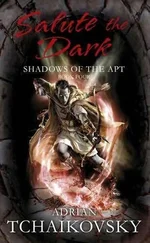Adrian Tchaikovsky - Heirs of the Blade
Здесь есть возможность читать онлайн «Adrian Tchaikovsky - Heirs of the Blade» весь текст электронной книги совершенно бесплатно (целиком полную версию без сокращений). В некоторых случаях можно слушать аудио, скачать через торрент в формате fb2 и присутствует краткое содержание. Жанр: Фэнтези, на английском языке. Описание произведения, (предисловие) а так же отзывы посетителей доступны на портале библиотеки ЛибКат.
- Название:Heirs of the Blade
- Автор:
- Жанр:
- Год:неизвестен
- ISBN:нет данных
- Рейтинг книги:4 / 5. Голосов: 1
-
Избранное:Добавить в избранное
- Отзывы:
-
Ваша оценка:
- 80
- 1
- 2
- 3
- 4
- 5
Heirs of the Blade: краткое содержание, описание и аннотация
Предлагаем к чтению аннотацию, описание, краткое содержание или предисловие (зависит от того, что написал сам автор книги «Heirs of the Blade»). Если вы не нашли необходимую информацию о книге — напишите в комментариях, мы постараемся отыскать её.
Heirs of the Blade — читать онлайн бесплатно полную книгу (весь текст) целиком
Ниже представлен текст книги, разбитый по страницам. Система сохранения места последней прочитанной страницы, позволяет с удобством читать онлайн бесплатно книгу «Heirs of the Blade», без необходимости каждый раз заново искать на чём Вы остановились. Поставьте закладку, и сможете в любой момент перейти на страницу, на которой закончили чтение.
Интервал:
Закладка:
A tribunal, he realized. He was not sure, just then, if he might not have preferred the Rekef and its interrogation tables. Every engineer knew of the tribunals, although nobody ever formally spread the information. They were not admitted to by the Corps, internally or externally, but apprentice artificers whispered the rumours one to another. They were the Corps’ own internal disciplinaries, for engineers who had betrayed the Corps to some other branch of the services. All nonsense, of course, for any such rivalry between the different wings of the army’s support corps would be damaging to the Empire, and thus never tolerated. And yet it was true, and it happened, and the Engineers looked after their own no less than did the Rekef or the Slave Corps or the Consortium. They were a young elite, the artificers of the Empire, and ruthless in keeping their secrets.
He found himself, at last, in an eight-sided chamber that he guessed must lie beneath the very centre of Severn Hill. The ceiling was a casual marvel, a piece of mechanical elegance that he realized must only ever be seen by the condemned and their judges. From a mosaic setting of geometric patterns set out in thumbnail-sized blue and green tiles depended a veritable orrery of lamps, circling one another in complex, perfect patterns to the gentle ticking of its clockwork. From a professional point of view it was admirable, but it peopled the scene below it with disturbing, circling shadows, and the blue-green of the ceiling reflected a gloomy, undersea radiance on to everything there.
There was a high dais to one side of the room, a long table set out upon it which was scattered with scrolls and papers, and at least one map that looked – from the brief glimpse Angved caught of it – to be a chart of the Lowlands. Angved himself was not destined for that table, of course. There were three rows of benches on the far side of the room, and they dumped him on one without a word and left him there, abruptly forgotten and abandoned.
Surreptitiously, he peered at the high table, trying to work out what was going on. There were a half-dozen men there, conferring in hushed voices but with a fair amount of animation, showing that, whatever was at stake, they had a great deal invested in it. Another man sat back, listening but not contributing, and displaying an indefinable air of wrongness. Not one of us, Angved realized, although he was not sure if he himself still counted as one of the Corps. The seated man was Rekef, though: he’d bet his life on it. An observer from the secret service – Outlander probably – brought to the secret heart of the Engineers’ little dominion. What is going on here?
The arguing men were four Wasps and two Beetles. After his eyes had adapted to the light, Angved could place at least half of them, and from that he guessed they must all be very senior engineers indeed. In the centre of the knot was Colonel Lien, his gaunt face looking as bitter as ever with the knowledge that his inferior rank was all the authority the Engineering Corps could muster. They had never been granted a generalship, and the others would all be mere majors.
Abruptly there was movement from behind Angved, with more hard and unsympathetic-looking guards arriving, and for a moment the engineer thought that he would just be hauled away again, his brief glimpse of this place just a mistake, punctuation on his road to some worse fate. The newcomers were delivering, however, rather than picking up, and someone slumped on to the bench next to Angved with a clink of chains.
This newcomer had not been employed on factory duty. Angved would find out later that this was the difference between being blamed for the demise of a halfway secret and deniable desert skirmish and being blamed for the failure of a major invasion. He was thin enough to look starved, with a wild growth of beard and his hair matted and tangled. Between that and the dirt, it was hard to see much in his face save the creases and lines. Grime and harsh treatment went a fair way to bridging what was in reality a fifteen-year gap in their ages, and perhaps it was this that broke through Angved’s shell of self-absorption. For the first time since the Khanaphes business had gone sour, he found himself looking on someone else as a human being, a kindred spirit.
The guards had stepped back to the door, and up at the high table the senior engineers were arguing again. A slim book was being passed back and forth, almost torn in half as they fought to point out various pages in it.
Angved saw the newcomer looking at him, the eyes lurking in that overgrown face surprisingly sharp.
‘Varsec,’ the man told him, keeping his voice low enough not to drift over to the guards, ‘former captain.’
‘Angved, former lieutenant.’ It was a curious brotherhood, and if the other man had once held a higher rank, still he had fallen further.
‘Engineers?’ the other man pressed.
Angved nodded. ‘You’re not?’
Thin shoulders shrugged. ‘Have they worked out where the Aviation Corps fits yet?’ he asked wryly, to Angved’s surprise. The aviators were virtually independent of their parent artificers, a young, arrogant and elitist band. This man did not seem to fit the mould, but then a few beatings and a turn on the rack would take the shine off anyone’s pride.
‘And you’re here for…?’ Varsec wondered.
‘Khanaphes,’ Angved found himself answering without hesitation.
‘Ah, I didn’t hear much of that. Still, I’ve not been best placed to get the news recently.’
‘You?’
‘Solarno.’
Angved blinked. That was a matter of public record, even if the doomed Khanaphir expedition was not. The Empire had taken Solarno as part of a daring experiment, an invasion planned and spearheaded by the Aviation Corps. They had lost the city at around the same time that the big war had turned, when suddenly there were too many battles to fight, and too few armies, and when the Lowlands had pulled together and everything else fell apart. He understood then that Varsec must be the ranking survivor of the Solarnese force, just as he himself was the scapegoat for Khanaphes.
He was about to pass a comment, his intended words surprising him by being solicitous rather than scathing, when something in Varsec’s pose alerted him. The men at the high table, those important engineering magnates, even the seated Rekef intruder, were looking back across the room. Their eyes fell on Varsec, and then on Angved, passing back and forth, finding each as unpalatable as the other, and yet they kept looking, snapping and growling at one another even as they did. The level of tension in the room, the bowstring-taut nerves of all those powerful men, was almost enough to taste. Words drifted across the room, odd snippets of hissed and urgent demands. ‘Are you sure…?’, ‘… the tests showed…’, ‘… would never let us do it…’, ‘… the Empress…’
Angved swallowed, but one fragment of their conversation had lodged in his mind. The tests, they had said. My tests? Have they read my report? And the only conclusion he could come to: There is nothing else in the world that could have landed me in this room, save the results I handed in – the tests I conducted in the Nem desert. A little piece of side-business undertaken while the Rekef team and their Scorpion-kinden tools had been cracking open Khanaphes; a little experimentation with some of the local resources that had borne an unexpected yield. He had thought it might provide a useful nest egg to retire on, but now it might be the only thing that could save his life and career.
He glanced at Varsec. The man wore an almost defiant expression as he looked at his superior officers, and Angved felt a leap of confidence in just seeing him. He is like me and, just like me, he’s found something that they need.
Читать дальшеИнтервал:
Закладка:
Похожие книги на «Heirs of the Blade»
Представляем Вашему вниманию похожие книги на «Heirs of the Blade» списком для выбора. Мы отобрали схожую по названию и смыслу литературу в надежде предоставить читателям больше вариантов отыскать новые, интересные, ещё непрочитанные произведения.
Обсуждение, отзывы о книге «Heirs of the Blade» и просто собственные мнения читателей. Оставьте ваши комментарии, напишите, что Вы думаете о произведении, его смысле или главных героях. Укажите что конкретно понравилось, а что нет, и почему Вы так считаете.












